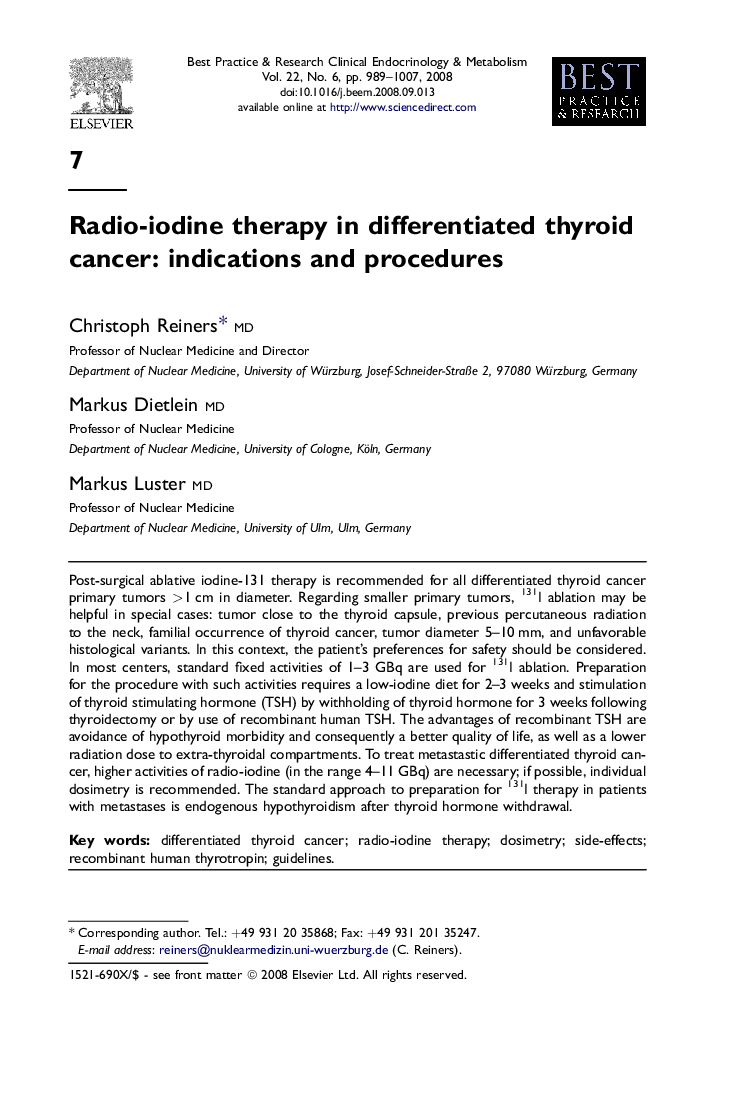| Article ID | Journal | Published Year | Pages | File Type |
|---|---|---|---|---|
| 2791870 | Best Practice & Research Clinical Endocrinology & Metabolism | 2008 | 19 Pages |
Post-surgical ablative iodine-131 therapy is recommended for all differentiated thyroid cancer primary tumors >1 cm in diameter. Regarding smaller primary tumors, 131I ablation may be helpful in special cases: tumor close to the thyroid capsule, previous percutaneous radiation to the neck, familial occurrence of thyroid cancer, tumor diameter 5–10 mm, and unfavorable histological variants. In this context, the patient's preferences for safety should be considered. In most centers, standard fixed activities of 1–3 GBq are used for 131I ablation. Preparation for the procedure with such activities requires a low-iodine diet for 2–3 weeks and stimulation of thyroid stimulating hormone (TSH) by withholding of thyroid hormone for 3 weeks following thyroidectomy or by use of recombinant human TSH. The advantages of recombinant TSH are avoidance of hypothyroid morbidity and consequently a better quality of life, as well as a lower radiation dose to extra-thyroidal compartments. To treat metastastic differentiated thyroid cancer, higher activities of radio-iodine (in the range 4–11 GBq) are necessary; if possible, individual dosimetry is recommended. The standard approach to preparation for 131I therapy in patients with metastases is endogenous hypothyroidism after thyroid hormone withdrawal.
